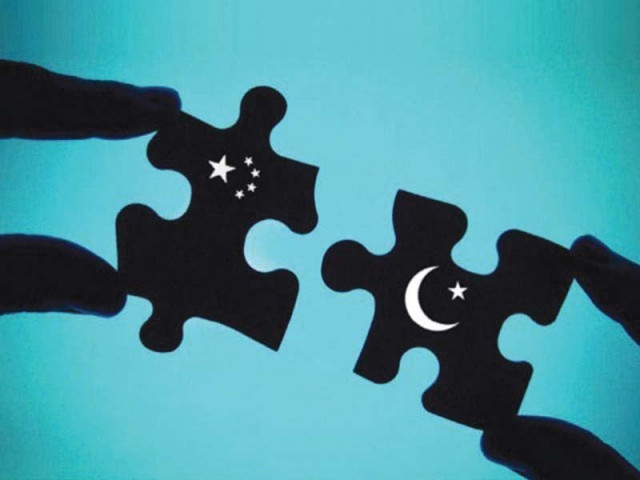Collaborative efforts: PCEC will streamline neighbour relations, says LCCI chief
Highlights economic impact of the deal, encourages businesses to enter tax net.

Highlights economic impact of the deal, encourages businesses to enter tax net. CREATIVE COMMONS
“It is a huge figure, and it will definitely bring about an industrial and services revolution in Pakistan,” said Lahore Chamber of Commerce and Industry President Ijaz A Mumtaz in an interview with The Express Tribune. “Once we start attaining our goals, we will be in a position to fetch economic gains from other neighbouring countries too, especially India.”

Majority of the office bearers of LCCI, including Mumtaz, are not averse to the idea of Pak-India trade and support it, but they do not want this trade at the cost of local industry which is already shrinking due to the energy crisis.
Other sectors have also voted against trade with India, due to the unbalanced policies of the Pakistani government. The PCEC though, brings hope for them as its core focus is to tackle energy crisis from indigenous resources and create industrial hubs along with the corridor.
“The corridor will not only help strengthen the crumbling industry, but the technology shift from China is also likely to bring modernisation and create an environment of competition between the industrial and other sectors,” said Mumtaz.
“Despite the fact that our industrial sector has been the biggest loser lately, our retail sector has expanded manifolds. This sector has yet to contribute more in terms of job creation and tax revenues,” he added.
Talking further on the subject, Mumtaz said the culture of encouraging the establishment of industrial units is dying with time, both at public and at government levels. “It is very easy to start a retail business since it is in demand and do not need much capital and energy.”
“I still remember that in 1970’s and 1980’s, the government officers searched people who could invest in the industrial sector, nowadays that practice has been overtaken by bureaucratic hurdles and taxation issues, “ remarked the LCCI President.
Terming fear of embracing the tax culture among middle and lower business communities as the biggest hurdle of fiscal deficit, he said “I never understand why the business communities of the retail and whole-sale markets, making billions of rupees, are demanding benefits from the government, when they are so hesitant to enter the tax net.”
He said despite problems from the taxation authorities, if the stakeholders show serious efforts, things can be streamlined and we would not have to look up to the international donors and financial institutes to fix our budget deficit.
Lastly he informed that LCCI had initiated a dispute centre to tackle trade and other related issues of Lahore business community. “Efforts are also underway to educate them about taxation issues, and how it can favour their business,” he concluded.
THE WRITER IS A STAFF CORRESPONDENT
Published in The Express Tribune, April 27th, 2015.
Like Business on Facebook, follow @TribuneBiz on Twitter to stay informed and join in the conversation.



















COMMENTS
Comments are moderated and generally will be posted if they are on-topic and not abusive.
For more information, please see our Comments FAQ